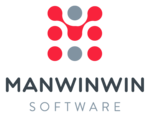Yes, most log book software is designed to be available from a variety of devices and platforms. This means you may view your log book data from any device, including a desktop computer, laptop, tablet, or smartphone, independent of operating system. This provides simplicity and flexibility to users who need to log data while on the go or transfer between devices. However, it is always advised that you check the software's compatibility with your individual devices before purchasing.
List of Best Log Book Software
ValGenesis is a versatile software that can be tailored to meet the specific needs of your company. With an easy-to-use interface, your system administrator can make necessary changes without the need for special programming skills. This ensures a se...Read More Valgenesis
Hubworks is a facility management software that offers a range of pre-loaded SOP templates to ensure efficient maintenance tasks. With its built-in task management system, tracking maintenance progress is a breeze. By incorporating Hubworks into your...Read More Hubworks
Fleetio is a mobile and cloud-based software designed for seamless fleet management. This solution simplifies the operations of businesses of all sizes and optimizes asset lifecycle management. It automates various fleet management tasks, making it a...Read More Fleetio
AmpleLogic Electronic Logbook is a software solution for managing all aspects of equipment usage. From calibrations and maintenance logs to cleaning tasks and other crucial details, this user-friendly application takes the hassle out of record keepin...Read More AmpleLogic Electronic Logbook
Motive, the advanced technology solution from KeepTruckin that revolutionizes physical economy businesses. Our Automated Operations Platform combines state-of-the-art IoT hardware and AI applications to elevate safety, efficiency, and profitability...Read More Motive
TruckLogger is an innovative software that is transforming the transportation industry. Through cutting-edge technology and advanced features, it streamlines logistics and enhances operational efficiency for companies. By modernizing traditional meth...Read More TruckLogger
Eclipse Logbook is an advanced electronic logbook tool created specifically for enterprises and institutions. With precise logging capabilities, it aids in preventing violations proactively, managing time and leave, tracking attendance, and optimizin...Read More Eclipse Logbook
Free Logbook solution for managing employees and fleets. This feature-rich software includes real-time statistics, online tracking, time and dispatch management, fuel and mileage tracking, and asset management, all conveniently integrated into one ea...Read More Free Logbook
A advanced software, Drivers Daily Log solution for maintaining business compliance reporting. With this comprehensive platform, you can effortlessly monitor daily logs, expenses, revenue, fuel, violations, and IFTA records. Get rid of the complexity...Read More Drivers Daily Log
Excel Pilot Logbook is a electronic logbook solution designed for pilots. With its intuitive features, including simple flight entry, automatic calculations, and online accessibility, this software makes shift handovers a breeze. Say goodbye to tedio...Read More Excel Pilot Logbook
eLogger, the premier operations and maintenance management solution. Simplify your daily tasks, consolidate data, and enhance communication for increased efficiency and compliance. Used and trusted by top industry players, eLogger transforms activity...Read More eLogger
Everlance is a tool for simplified mileage and expense tracking. Perfect for both personal and business use, this app uses GPS technology to automatically record trips and sync credit card transactions. Say goodbye to tedious manual entry and hello t...Read More Everlance
ManWinWin is a maintenance software designed to streamline asset management and enhance operational performance across various industries. With a track record of over 40 years, our tailored solutions cater to the needs of industrial plants, buildings...Read More ManWinWin
Shiftconnector is a and powerful digital tool created to streamline shift handovers, team communication, and production management in process industries. With real-time access to vital data and full compliance with regulations, Shiftconnector ensures...Read More Shiftconnector
Learn More About Log Book Software
- What Is Log Book Software?
- What Are The Recent Trends In Log Book Software?
- Benefits Of Using Log Book Software
- Important Factors To Consider While Purchasing Log Book Software?
- What Are The Key Features To Look For In Log Book Software?
- Why Do Businesses Need Log Book Software?
- How Much Time Is Required To Implement Log Book Software?
- What Is The Level Of Customization Available In Log Book Software?
- Which Industries Can Benefit The Most From Log Book Software?
- Conclusion
What Is Log Book Software?
Log book software is a digital application that simplifies and automates the process of keeping records, logs, and reports. It provides an efficient and orderly method for tracking a wide range of data, making it a vital tool for enterprises, organizations, and individuals alike. This software enables users to enter and save data in digital format, reducing the need for manual log entries.
It also allows users to adapt log formats to meet their individual requirements, as well as conveniently access and search historical entries. One of the most major benefits of log book software is its capacity to generate thorough reports and analyses based on the information entered. This saves time and effort while also allowing for more informed decision-making.
Furthermore, log book software provides a secure and centralized storage system, guaranteeing that all documents remain safe and conveniently accessible to authorized users. It also enables seamless cooperation and data sharing among team members. When choosing log book software, check for features like a user-friendly interface, customization choices, data analysis tools, and integration capabilities.
This will ensure that the program suits your specific requirements while increasing your efficiency. Overall, log book software is an invaluable resource for any company or individual seeking to efficiently store and analyze data. With its numerous advantages and features, it is an excellent investment for companies of all sizes and industries.
What Are The Recent Trends In Log Book Software?
In today's fast-paced and digital world, logbook software has become an indispensable tool for enterprises, organizations, and people to properly manage their records and data. In recent years, various trends in the logbook software market have emerged as technology has advanced.
Here are the key trends to watch for when choosing logbook software for your needs:
1.Cloud-Based Solutions: Cloud-based logbook software is becoming increasingly popular because to its simplicity, scalability, and cost-effectiveness. Users of this type of software can access their logbooks and data from any location and at any time via an internet connection. It also removes the requirement for hardware and software installation, making it a hassle-free option.
2. Mobile Accessibility: As more people and businesses become mobile-centric, logbook software vendors are developing mobile-friendly versions of their software. This allows users to view and update their logbooks from their smartphones and tablets, giving them greater flexibility and convenience.
3. Artificial Intelligence (AI) Integration: AI-powered logbook software is gaining popularity due to its capacity to automatically extract and arrange data from several sources, increasing efficiency and accuracy. AI integration also allows the program to learn and adapt to user behavior, making logbook administration more efficient.
4. Integration With Other Systems: It is becoming increasingly popular to integrate logbook software with other systems such as accounting software, project management tools, and customer relationship management (CRM) systems. This interface enables smooth data interchange, increasing data accuracy and efficiency.
5. Real-Time Data Tracking: With the emergence of the Internet of Things (IoT), logbook software may now communicate with a variety of devices and sensors to collect real-time data. This gives users an up-to-date view of their data, allowing for better decision-making.
6. Improved Security Measures: As data security and privacy become more important, logbook software companies are always improving their security procedures to protect users' data from cyber threats. Look for software that includes strong encryption, secure authentication, and regular data backups for added peace of mind. Keeping up with these trends will allow you to make an informed decision when selecting logbook software for your requirements. Consider your individual needs and budget, and choose software that follows these trends to ensure a smooth and effective logbook management process.
Benefits Of Using Log Book Software
Log book software, often known as electronic logbooks, has become a useful tool for both organizations and individuals. Log book software provides numerous benefits, including the ability to track daily tasks and record critical data, making it an indispensable tool for anybody trying to enhance their organization, efficiency, and productivity.
We will look at the main benefits of using log book software and how to make an informed decision when selecting the best one for your needs.
1. Streamlines Data Entry: One of the most major benefits of log book software is the ability to automate data entry. Entering information into a typical paper logbook can be time consuming and error-prone. With electronic logbooks, data can be readily entered and saved with a few clicks, saving time and decreasing the possibility of human error.
2. Centralized Storage: Another advantage of adopting log book software is that it allows you to keep all of your data in one area. This eliminates the need for various paper logbooks, making it easier to access and track data. Furthermore, most log book software includes cloud-based storage, which allows you to retrieve your data from any location with an internet connection.
3. Data Security: In today's digital age, data security is a significant responsibility for both businesses and individuals. Log book software includes extensive security features such as encryption and user passwords to keep critical information safe from unauthorized access. This provides piece of mind while also ensuring the safety and security of your data.
4. Configurable Templates: Log book software includes configurable templates, allowing you to build individual logs based on your specific requirements. Whether you need a work log, inventory log, or customer service record, the program may be customized to meet your needs. This versatility means that you can track and manage your data in an organized and efficient manner.
5. Real-time Tracking: Traditional paper logbooks often record information at the end of the day or shift, making it difficult to track progress in real time. Log book software, on the other hand, enables real-time tracking and monitoring, providing useful insights into your everyday activities. This allows you to immediately detect and address inefficiencies or bottlenecks.
6. Data Analysis And Reporting: Log book software has additional functions such as data analysis and reporting, which can help you get useful insights into your business or personal activities. Customizable reports and analytics allow you to analyze trends, uncover patterns, and make data-driven decisions to boost your productivity.
Important Factors To Consider While Purchasing Log Book Software?
When selecting log book software, there are several critical elements to consider to ensure that you are making the greatest investment for your requirements.
Here are some crucial aspects to consider while comparing alternative options:
1. Compatibility: The most important element to evaluate is if the software is compatible with your existing devices and systems. To avoid compatibility difficulties, ensure that the software is compatible with your operating system, hardware, and other software.
2. Features And Functionality: Log book software can provide a variety of features and functionality based on your individual needs. Common features to consider are automated log entries, customisable templates, data syncing, security protections, and reporting tools. It is critical to determine which features are critical for your business and select software that meets those requirements.
3. User-Friendly Interface: An easy-to-use interface is essential for using log book software effectively. Look for a software with a well-organized interface, simple navigation, and an intuitive design. This will save you time while also increasing user adoption within your organization.
4. Mobile Accessibility: With the growing popularity of remote work and flexible schedules, having mobile-accessible log book software can be quite beneficial to your organization. This enables you to record and access data on the road, making it easier for your team to keep organized and connected.
5. Data Security: When selecting log book software, ensure that your data is secure. Look for software that includes password protection, data encryption, and automatic backups to protect your information from potential dangers.
6. Customer Help: Having access to reliable customer help in the event of a technical problem or question might be game-changing. Before making a purchase, determine whether the software provider provides customer care via email, phone, or chat, as well as the time it takes to respond.
7. Price Plans: Finally, compare the pricing plans of various log book software solutions and select one that fits inside your budget. Before making a decision, take into account any additional charges such as setup fees, maintenance fees, or contract conditions. Keeping these elements in mind allows you to make an informed selection when selecting log book software, which will streamline your record keeping and increase productivity in your organization.
What Are The Key Features To Look For In Log Book Software?
When looking for the best Log Book Software for your purposes, there are a few crucial characteristics to consider. These capabilities will not only streamline your logging process, but will also provide you with all of the tools you need to manage your logs effectively and efficiently.
Here are the key features to look for in log book software:
1. User-Friendly Interface: The software's interface should be straightforward and easy to use. This will save you time and frustration while entering and retrieving data.
2. Customization Options: Look for software that allows you to personalize your logs based on your individual requirements. This will make it easier to track and arrange your information in the way that best suits you.
3. Real-Time Tracking: A decent log book software should allow you to track and record your data in real time. This will provide accurate and current information for analysis and decision-making.
4. Integration Capabilities: The software should be compatible with other systems and apps that you use. This will improve your workflow by eliminating the need for manual data entry.
5. Data Security: Ensure that the software you select has strong security mechanisms in place to safeguard your sensitive information. This incorporates encryption, user access controls, and backup capabilities.
6. Reporting And Analytics: Choose software that has thorough reporting and analytics capabilities. This will allow you to detect patterns, trends, and opportunities for improvement in your logging operations.
7. Mobile Accessibility: In today's fast-paced environment, having access to your logs while on the go is critical. Choose mobile-friendly software that allows you to log in and access data from anywhere.
8. Customer Support: Look for a software company that provides dependable customer service. This will be useful if you encounter any problems or have queries regarding the software. By taking these crucial qualities into account, you will be able to locate the ideal Log Book Software to match your individual logging requirements while also assisting you in remaining organized and productive. Remember to read reviews and try demo versions before making a selection to ensure that the product is a good fit for your needs.
Why Do Businesses Need Log Book Software?
Log book software has become an indispensable tool for companies of all sizes and industries. This program simplifies the process of keeping track of critical information and data, allowing organizations to keep accurate records and make sound decisions. One of the primary reasons that businesses want log book software is to increase efficiency and productivity. With this software, organizations can abandon manual and time-consuming record-keeping procedures.
Instead, they may swiftly enter and retrieve data, saving time and effort. This also helps staff to concentrate on more vital activities, resulting in increased productivity. Another advantage of log book software is that it ensures accuracy and consistency in record-keeping. Unlike manual logs, which are prone to human mistake, this software ensures that data is entered accurately and consistently.
This enables organizations to keep accurate records, which are required for legal compliance and decision-making. Furthermore, log book software offers a consolidated and orderly mechanism for storing and retrieving data. It reduces the need to save paper records or spreadsheets on many devices, making information more accessible and shareable with key parties.
This also improves data security because the program provides for limited access to critical information. Furthermore, log book software has advanced functionality like data analysis and reporting. This enables firms to get insight into their operations and make data-driven decisions. This software can also automate certain operations, such as providing notifications about impending appointments or maintenance schedules, which increases productivity.
Log book software adds an extra degree of security to firms that deal with sensitive information. This software often has built-in security measures like password-protected logins and data encryption to safeguard sensitive information from unauthorized access or breaches. Businesses in today's digital age must keep up with an ever-increasing volume of data and information. Log book software enables firms to properly handle the influx of data while keeping accurate records. It also provides bespoke solutions for specific industries, such as medical or legal, making it a useful tool for enterprises of all sizes.
How Much Time Is Required To Implement Log Book Software?
One of the most frequently requested questions when considering deploying log book software is, "How much time will it take to implement?" The answer to this question depends on a number of factors, including your organization's size and complexity, the software you choose, and the level of customisation required. However, on average, the implementation phase can last from a few weeks to a few months. The first step in deploying log book software is determining the best solution for your company. Spend time researching and comparing different possibilities, taking into account features, pricing, and user feedback.
Once you've decided on a software, the next step is the actual implementation process, which can be divided into the following stages:
1. Planning: During this stage, you will determine your organization's objectives, goals, and requirements, as well as set a timeframe for execution.
2. Configuration: During this phase, the program will be tailored to your individual requirements. This can include establishing user permissions, developing templates and workflows, and importing existing data.
3. Testing: It is critical to extensively test the program before releasing it to ensure that all features function properly and that any defects have been addressed.
4. Data Migration: Depending on the program, data from your old log book system may need to be transferred to the new software. This can be a time-consuming operation, particularly if there is a huge amount of data.
5. Instruction: In order for your team to effectively use the log book software, they will require instruction on how to use it. This can include both online courses and in-person training sessions. The timeline for each phase will vary depending on the complexity of your company and the software being introduced. It is critical to maintain continuous communication with the software vendor throughout the process to ensure a smooth and timely installation. With good planning and preparation, the implementation process can be finished promptly, and your firm may begin reaping the benefits of log book software immediately.
What Is The Level Of Customization Available In Log Book Software?
Log book software offers numerous levels of customisation to meet the specific needs of different industries and organizations. These features allow customers to tailor their log book software to their individual needs, making it a worthwhile investment for any organization wishing to streamline its logging procedures. One of the most important levels of customisation offered in log book software is the ability to add and remove fields from log book templates.
This allows users to customize their log book entries, including specific data points and information collecting. This helps to capture accurate and relevant data, making it easier to evaluate and generate reports. Another level of customization is the ability to build various log book templates for different uses. Depending on the nature of an organization's operations, several log book styles may be required for specific tasks or divisions.
Log book software allows users to create various templates with different fields and layouts, making it a versatile tool for all their logging needs. Customization also includes the user interface of the log book program. Users can customize the software's layout and style to make it more user-friendly and intuitive for their teammates. This amount of customisation ensures that all users can navigate the software and accomplish their log book responsibilities without confusion.
Additionally, log book software enables users to configure notifications and alerts for specific events or data entries. This is especially valuable in businesses where compliance is essential, such as healthcare and transportation. Users can personalize these alerts to ensure that they are instantly notified of any problems or missing data entries, allowing for timely changes.
Which Industries Can Benefit The Most From Log Book Software?
Log book software, often known as electronic logbooks, is a useful tool for many businesses that demand precise recordings of events, activities, and data. These digital applications provide a streamlined and effective method of managing, tracking, and analyzing data, making them a valuable tool for businesses across industries. The transportation industry can tremendously benefit from log book software.
Whether it's a tiny delivery firm or a huge fleet, logbooks are essential for keeping track of driver hours, vehicle upkeep, and route information. Companies may simply track and manage their drivers' hours of service using computerized logbooks, ensuring regulatory compliance and preventing breaches. Furthermore, log book software can monitor vehicle maintenance schedules and provide insights to help enhance efficiency and reduce downtime.
The healthcare industry can also profit from log book software. Healthcare facilities can benefit from the expedited process and accuracy of electronic logbooks, which meet tight documentation and compliance requirements. These tools allow you to enter patient data, track drugs and treatments, and plan appointments, lowering the chance of errors and improving patient care.
Logbook software can assist manufacturing and production organizations in managing and tracking inventory, production processes, and quality control. Electronic logbooks can help increase communication and collaboration between departments while also providing real-time updates on production progress. Log book software can help hotel staff communicate more effectively, track guest information and requests, and improve room registration and check-in operations.
This can ultimately lead to higher guest satisfaction and more efficient operations. In addition to these businesses, log book software can aid education, construction, and agriculture. Log book software's adjustable features and data analysis capabilities allow it to be adjusted to the specific demands of many industries, making it a versatile and important tool for enterprises of all sizes.
Conclusion
To summarize, investing in dependable and effective log book software can considerably benefit your firm, regardless of size or industry. This software, which includes features like automatic data entry, customisable templates, and real-time tracking, can help you streamline your recording procedures and save time and resources. Furthermore, the ability to generate extensive reports and analytics can provide significant insights and allow you to make informed business decisions. Before making a decision, thoroughly assess your individual requirements, including pricing, compatibility with your devices and systems, and customer support.
It is also advisable to study reviews and seek suggestions from other firms in your field to ensure that you select the best log book software for your organization. Implementing excellent log book software can help you enhance the organization, efficiency, and accuracy of your logging procedures, resulting in higher productivity and long-term cost savings. Remember the major characteristics covered in this tutorial and use it as a reference to help you pick the best log book software for your business. We hope our buyer's guide was useful in your selection process. Happy logging!
Log Book Software FAQ's
Can Log Book Software Be Accessed Across Multiple Devices And Platforms?
Is Log Book Software Future-Proof And Adaptable To Emerging Technologies Like AI, Blockchain Or IoT?
Log book software is continually improving to keep up with emerging technologies such as artificial intelligence, blockchain, and the Internet of Things. It is intended to be future-proof and versatile, enabling smooth interaction with these cutting-edge innovations.
Log book software can improve record-keeping efficiency and accuracy by automating operations, analyzing data in real time, and using safe encryption methods. As technology advances, log book software will adapt and evolve to meet the changing needs of enterprises.
Is There A Free Trial Offered To Assess Log Book Software Before Committing?
Yes, many log book software suppliers provide a free trial period so that potential clients can evaluate the product before committing to a purchase. This trial time allows customers to test the software's features and functionalities, assess its usability, and determine whether it satisfies their specific requirements. Before making a commitment, you should take advantage of this opportunity to check that the product is a good fit for your organization.
Does Log Book Software Offer Data Security Features And Meet Regulatory Compliance Standards?
Absolutely! Log Book Software takes data security extremely seriously, and uses a variety of security measures such as encryption, password protection, and access controls to secure the confidentiality and integrity of your data. Furthermore, our software is intended to fulfill regulatory compliance standards like as HIPAA and GDPR, ensuring that your data is secure and compliant. You can rely on Log Book Software to keep your data secure and compliant.
Can Log Book Software Integrate Seamlessly With Existing Tools And Platforms?
Yes, most logbook software is designed to work easily with existing tools and platforms. This ensures a smooth data flow and eliminates the need to manually enter information into multiple systems. Most log book software integrates with common platforms such as Microsoft Excel, Google Sheets, and QuickBooks. Additionally, some software has APIs that allow for easy integration with custom or industry-specific solutions. This improves and simplifies data management for enterprises.
















